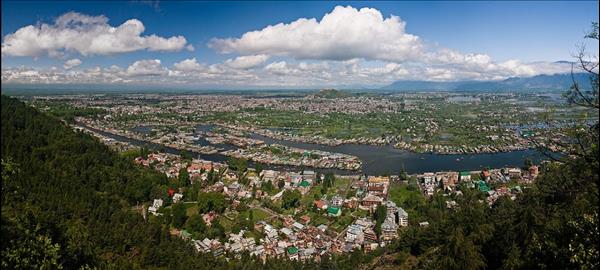(MENAFN- Asia Times) The Economic Advisory Council to the prime minister of India recently released an occasional paper on challenges confronting the group of twenty and the need to craft appropriate policy responses by incorporating the concerns of the developing world or the Global South.
For instance, on climate change, the paper emphasized increased assistance to developing countries to operationalize resilience measures and develop generous technology-sharing norms. Notably, to help the Global South overcome post-pandemic economic challenges, the paper called for greater multilateral and bilateral funding for“build back broader” initiatives by implementing integrated infrastructure projects.
Since taking over the presidency of the G20 in December last year, the Indian government has made persistent efforts to include diverse voices in G20 dialogues. For example, a“Voice of Global South Summit” was held in January to consult and
incorporate views
of developing countries in the agenda for the G20.
As of last month, more than
12,300 delegates from more than 110 nationalities
have participated in various meetings of the G20. Thus far, more than
105 meetings
pertaining to the G20's engagement groups, ministerial meetings and sherpa tracks have been organized in India.
Through its G20 presidency, India is sending a message that as a leader in multilateral platforms, it will work to usher in inclusive agenda-setting practices and create transparent processes to act on shared global challenges.
Numerous institutions across India are organizing G20-related conferences, workshops, seminars and other events. The active participation of diverse segments of society in these events suggests a growing interest in international politics.
With the spread of media and social-media platforms, there is a growing understanding, even among the ordinary masses, that international developments impact their daily lives. For instance, it is now more widely understood that the increase in energy prices is connected to the conflict in Ukraine.
The Indian service sector is getting increasingly plugged into the global economy, and the collapse of silicon valley bank in the US negatively impacted many startups in India. There is considerable discussion in India on the occasional failures in financial regulation in advanced economies and their implications for developing economies.
Indian presence abroad
More and more people are traveling out of India for work and as
tourists . In 2022, the number of students traveling abroad for higher studies increased by
68%
to a total of 750,365. Given the significant presence of Indian workers, students and diaspora in various parts of the world, the consequences of international conflicts are immediately felt within the country.
The visuals of Indians getting evacuated from Ukraine and, more recently, from Sudan touch a deep emotional nerve. These examples attest that international politics is no longer a distant phenomenon that a few in Delhi engage with in English. Instead, international politics now is tracked by commoners on their mobile phones, also in vernacular, as it has implications for their everyday life.
Therefore, the Indian government's G20 agenda and event schedule are a response to the growing interest in international politics in the country. Whether in Arunachal Pradesh in northeast India or Kerala in the deep south, G20 meetings are being held all across the country.
India's international engagement is getting democratized, which should endure beyond the G20 Summit in September. A wide range of players – state governments, think-tanks, educational institutions, trade associations, labor unions, and cultural groups – are now attempting to influence India's external engagement.
Many state governments are proactively using the G20 meetings to showcase the economic opportunities in their respective areas. Similarly, Srinagar, in Jammu and Kashmir, will host the third G20 Tourism Working Group Meeting on May 22-24.
Hosting a tourism-related G20 dialogue in Srinagar is most appropriate given the tourism potential in Jammu and Kashmir. It also indicates the normalization of the security situation in the state after years of terrorist activities.
Recently, Dubai's Emaar Group
invested
in the retail sector in Srinagar. As a result, there is anticipation that more foreign direct investment (FDI) will flow into the logistics, tourism and connectivity sectors.
There are examples from India wherein greater international economic engagement created more jobs and positive political outcomes.
For instance, the emergence of Hyderabad as a software hub of global eminence resulted in a massive increase in employment opportunities in software and allied sectors in the state of Telangana. As a result, the ideological attraction of Naxalism, an armed communist guerrilla movement, was diminished, altering the political dynamics for the better in the region.
There is an anticipation that Jammu and Kashmir will also witness the emergence of a virtuous economic environment through greater international engagement. The Srinagar G20 meeting, therefore, could be an episode when the public's gaze turns outward to global opportunities. Of course, one international event will not achieve such a shift, but it can constitute one of the many important nodes of change.
However, there are many challenges to India's attempts to create an inclusive and transformative G20 agenda. India's G20 presidency came amid the twin dynamics of increased political polarization and economic volatility in the global landscape.
Because of the Covid-19 pandemic and the Ukraine conflict, the economic challenges for the Global South have been compounded. The prolonged war in Ukraine and big-power contestation dominate the global discussion, and there is relatively little focus on increased assisting and honoring the commitments made to the Global South.
In the run-up to the G20 Summit in Delhi in September, the Global South should demand that the big powers show commitment to a more equitable economic order through a joint statement that would declare support to climate-resilient initiatives and infrastructure initiatives through generous, transparent, and fair funding mechanisms.
Like this:Like Loading...


















Comments
No comment